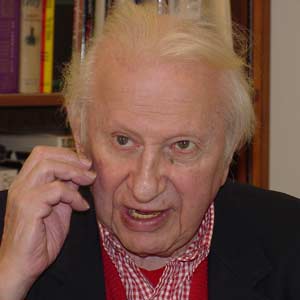 rkel once said. The author and radio host died today at the age of 96. "At his bedside," the Chicago Tribune reported, "was a copy of his latest book, 'P.S. Further Thoughts From a Lifetime of Listening,' scheduled for a November release."
rkel once said. The author and radio host died today at the age of 96. "At his bedside," the Chicago Tribune reported, "was a copy of his latest book, 'P.S. Further Thoughts From a Lifetime of Listening,' scheduled for a November release."Historians have especially valued Terkel's works based on oral history interviews, including Working: People Talk About What They Do All Day and How They Feel About What They Do, Hard Times: An Oral History of the Great Depression and The Good War: An Oral History of World War II, for which Terkel was awarded the Pulitzer Prize. In 1997 he was awarded the National Humanities Medal and the National Medal of Arts.
The New York Times described his work:
For his oral histories, Terkel interviewed his subjects on tape, then transcribed and sifted. ''What first comes out of an interview are tons of ore; you have to get that gold dust in your hands,'' he wrote in his memoir. ''Now, how does it become a necklace or a ring or a gold watch? You have to get the form; you have to mold the gold dust.''
One thing I never knew: Terkel was a graduate of the University of Chicago Law School. According to the Trib,
He never practiced law. Instead, he took a job in a federally sponsored statistical project with the Federal Emergency Rehabilitation Administration, one of President Franklin D. Roosevelt's "New Deal'' agencies. Then he found a spot in a writers project with the Works Progress Administration, writing plays and developing his acting skills.
Recordings from Terkel's radio programs and oral history interviews are here.